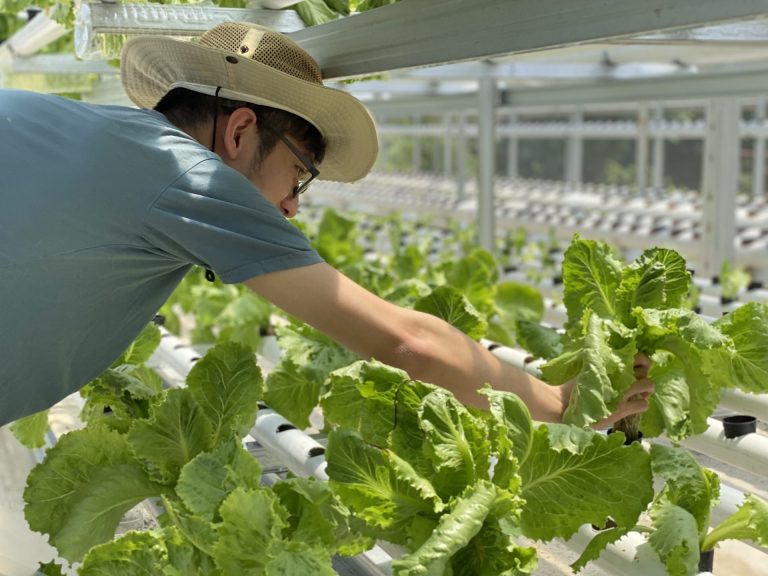High Educational Value
Nationally recognized educational quality at an affordable price.
*Source: O*Net/U.S. Bureau of Labor Statistics. Unity cannot guarantee employment. Salary data represents averaged earnings for occupations listed and includes workers at all levels of education and experience.

In this course, you will explore many different plant diseases and their impact. Ultimately, you’ll design strategies and practices for preventing and treating disease to promote healthy plant growth. For the Course Project, you’ll focus in on diseases for a specific scenario, and develop a plan for growing healthy plants.

Plants, as the most prominent primary producers in terrestrial systems due to photosynthesis, are the base source of energy in the most ecosystems. This course will introduce you to the factors that influence the growth, distribution and abundance of plants, the influence of plants on energy and nutrient flow, and key features of plant biology.

This course involves detailed study of the biological, chemical, and geological components of soil, soil types, and soil health. Topics covered include principles and processes in soil chemistry, soil taxonomy, soil geography, and erosion.

Sustainable horticulture combines plant science with eco-friendly practices to cultivate plants in various settings, from fields to greenhouses to vertical hydroponic systems. You’ll master skills in integrated pest management, disease management, and the safe use of fertilizers, herbicides, and pesticides.
Additionally, you’ll learn to design efficient plant growing systems and develop small business skills, including financial planning, management, and product marketing. Graduates are prepared for careers in agronomy, farming, greenhouse management, hydroponics, and seed production. They can apply climate-smart agricultural practices to improve sustainability and address global issues such as climate change, energy use, and water availability.
The BS in Sustainable Horticulture will prepare you to use sustainable approaches with horticultural science to manage and improve plants and their products. You will learn to monitor and adjust growing conditions in various contexts, from fields to greenhouses to hydroponic systems, in order to maximize crop yields and address problems such as plant pests and diseases. Throughout the horticulture program, you will also learn and apply principles of accounting, marketing, labor law, and personnel management as you analyze and develop business plans and practices for sustainable horticultural products and services. Program graduates will be prepared for a wide variety of careers, including greenhouse management, hydroponic crop production, landscape design, horticulturist work, and urban farming.
Your online education should be affordable and manageable. Thanks to our promise to keep tuition flat through 2030, you won’t be burdened with unexpected increases or fees.
Our team of distance education concierges will work with you through the admissions process to help you plan and pay for your degree. Learn more about the costs here.
Our comprehensive 120-credit program can be tailored to fit your schedule and goals! Completion time is flexible, determined by the number of credits you choose to take each term (8 terms/year) and less time with transfer credits. Without transfer credits, you can anticipate the following completion times:
General Education Core: 40 credits
Environmental Professional Core: 13 credits
Elective Courses: 31 credits
Program Core: 36 credits
For course requirements and a better look into your program, view our full course catalog. Then apply online for free to get started.
The sustainable horticulture degree requires 120 credits. You may transfer in up to 90 credits from outside institutions. View our full course catalog for a better look into your program. Then apply online for free to get started.
Nationally recognized educational quality at an affordable price.
Committed to sustainable practices to prepare for a future of environmental awareness.
Dedicated to turning career and academic aspirations into tangible achievements.
Accepting up to 90 transfer credits to graduate sooner and save money.
Connect with experts who share your passion for working in the industry.
Ranked in the top 1% of universities nationwide by the Social Mobility Index.
With up to 8 terms a year, you can take a break without jeopardizing financial aid.
Balance life, work, and education by studying when and where you want.